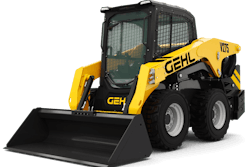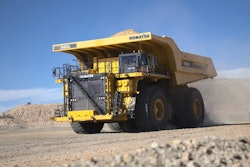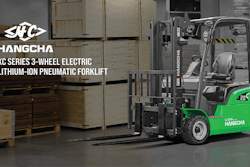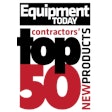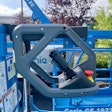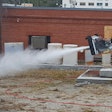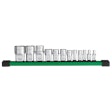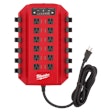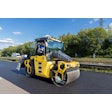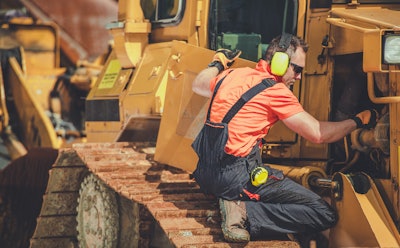
Keeping heavy machinery in great condition is of utmost importance to construction workers for several compelling reasons. First and foremost, well-maintained machinery ensures the safety of both the operators and those working around them.
Construction sites are inherently hazardous environments and any malfunction or breakdown of heavy machinery can lead to accidents, injuries or even fatalities.
By regularly maintaining and inspecting the equipment, construction workers can minimize the risk of unexpected failures and create a safer working environment. Additionally, the longevity and efficiency of heavy machinery are closely tied to its maintenance. Construction equipment represents a significant investment for construction companies and maximizing the lifespan of these assets is crucial for the business's financial well-being.
Proper maintenance practices help prevent premature wear and tear, minimizing repair costs and prolonging the lifespan of the machinery. Well-maintained equipment also tends to operate more efficiently, leading to increased productivity on the construction site.
Moreover, regular maintenance and care contribute to minimizing downtime. When heavy machinery breaks down unexpectedly, it can disrupt project timelines, cause delays and result in significant financial losses.
By implementing a proactive maintenance strategy, construction workers can detect and address potential issues before they escalate into major problems, thus reducing unplanned downtime and keeping projects on track.
In today's competitive construction industry, reputation is vital. Clients and stakeholders expect construction companies to deliver high-quality work within specified timelines. By maintaining heavy machinery in excellent condition, construction workers can uphold their reputation for reliability and professionalism.
Well-maintained equipment demonstrates a commitment to excellence and instills confidence in clients, potentially leading to repeat business and positive word-of-mouth recommendations.
Furthermore, environmental considerations cannot be overlooked. Heavy machinery that is not properly maintained can be more prone to emitting harmful pollutants or leaking fluids, which can harm the environment.
By adhering to regular maintenance practices, construction workers can minimize the environmental impact of their equipment, ensuring compliance with environmental regulations and promoting sustainability.
Here are some essential tips for keeping heavy machinery in great condition.
Follow the Manufacturer's Maintenance Guidelines
Following the manufacturer's recommended maintenance schedule and guidelines is essential for several reasons. Manufacturers thoroughly understand their machinery's design and engineering, providing expert advice on maintenance practices to ensure optimal performance and longevity.
Regular inspections, proper lubrication and timely filter changes help prevent wear and damage. Failure to adhere to these guidelines can void warranties, leaving the construction worker responsible for repair costs. Moreover, neglecting maintenance increases the risk of premature equipment failure, leading to downtime and potential safety hazards on the construction site.
Perform Regular Inspections
Regular inspections are critical for detecting early signs of wear, leaks, loose bolts and unusual noises in heavy machinery. Addressing these issues promptly through timely repairs helps prevent minor problems from developing into major breakdowns.
By conducting thorough inspections before and after each use, construction workers can ensure the machinery's optimal performance, safety and longevity, reducing downtime and repair costs.
Keep Machinery Clean
Regularly cleaning heavy machinery is crucial to prevent wear, corrosion and potential damage. Dirt and debris can accumulate on vital components, hindering proper airflow and leading to overheating.
Using high-pressure water and suitable cleaning agents helps remove stubborn contaminants effectively. Keeping the equipment clean ensures optimal cooling efficiency, enhances performance and extends the machinery's lifespan, reducing the risk of costly repairs and downtime.
Ensure Proper Lubrication
Lubrication is vital in minimizing friction and wear on the moving parts of heavy machinery. Following the manufacturer's recommended lubrication schedule and using the correct lubricants are essential for optimal performance.
Over-greasing can cause excess heat and attract contaminants while under-greasing leads to increased wear. Regularly inspecting grease points allows for the timely detection of issues and ensures proper lubricant application. Cleaning the points before reapplying lubricant helps maintain a clean and efficient lubrication system, enhancing the machinery's overall performance and durability.
Train Operators Thoroughly
Properly trained operators are crucial for the longevity of heavy machinery. Comprehensive training on equipment operation, safety protocols and maintenance procedures empowers operators to handle the machinery correctly and safely. Reporting irregularities and concerns promptly allows for timely maintenance and prevents potential issues from escalating, ensuring the machinery operates efficiently and extends its lifespan.
Store Machinery Correctly
Proper heavy machinery storage is essential to protect it from environmental elements and vandalism. Designated storage areas shield the equipment from rain, snow and direct sunlight, preventing rust and weather-related damage. Using appropriate covers adds an extra layer of protection, ensuring the machinery remains in great condition during periods of inactivity, ultimately prolonging its lifespan and reducing maintenance costs.
Replace Worn or Damaged Parts Promptly
Timely replacing worn or damaged parts is important to prevent further damage and costly repairs. Compromised components can have a domino effect, negatively impacting other machinery parts. By keeping an inventory of commonly replaced parts, construction workers can swiftly address issues as they arise, minimizing downtime and ensuring the heavy machinery operates at its best, reducing the risk of major breakdowns.
Monitor Fluid Levels Regularly
Checking and maintaining proper fluid levels in heavy machinery is vital for smooth operation. Engine oil, hydraulic fluid, coolant and brake fluid are critical to the equipment's performance and longevity. Low fluid levels can lead to overheating, increased friction and accelerated wear on vital components. Regularly inspecting for leaks and addressing issues promptly helps prevent further damage and ensures optimal machinery performance.
Keep Records of Maintenance
Maintaining detailed records of maintenance and repairs is essential for effective equipment management. These records help track maintenance schedules, ensuring that tasks are performed at appropriate intervals. Construction workers can address underlying problems and implement preventive measures by identifying recurring issues.
Additionally, well-documented records demonstrate compliance with warranties and regulatory requirements, providing a clear history of the machinery's care and ensuring accountability.
Conduct Professional Inspections
Periodic inspections by qualified technicians are essential for comprehensive heavy machinery maintenance. These experts possess in-depth knowledge and expertise, enabling them to identify potential issues that might be missed during regular inspections. Detecting problems early on prevents costly breakdowns and ensures the equipment's optimal performance. Moreover, their expert advice on maintenance practices helps construction workers optimize machinery care, improving efficiency and extending machinery lifespan.
Keeping heavy machinery in great condition is paramount for construction workers due to its significant impact on safety, efficiency and overall project success. Following the tips outlined in this article, construction workers can ensure their equipment remains in top-notch condition.
Implementing these practices not only enhances the longevity and performance of the machinery but also safeguards workers and the environment. With well-maintained equipment, construction companies can uphold their reputation, reduce downtime and optimize their investments, ultimately contributing to a successful and thriving construction operation.
Katherine Robinson is a writer from MiniFinalDrives. The company offers a selection of final drive motors for top excavator brands, including Caterpillar, Bobcat, John Deere, Link-Belt, Volvo and Kubota. The business is based in Salisbury, North Carolina.
